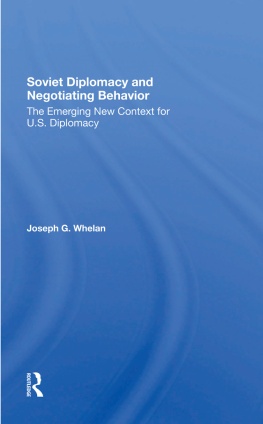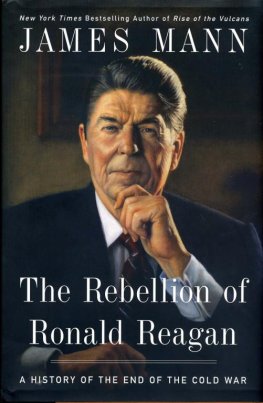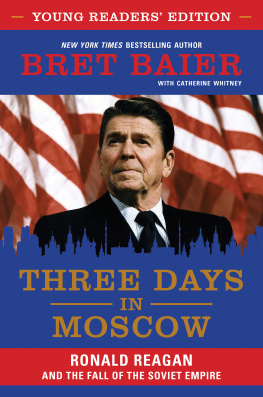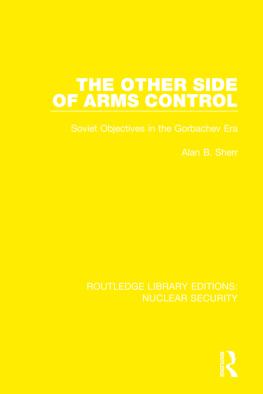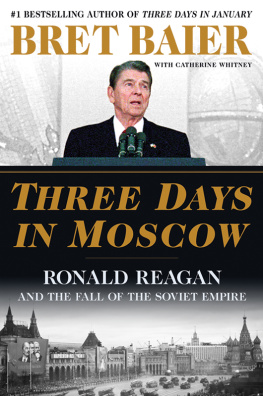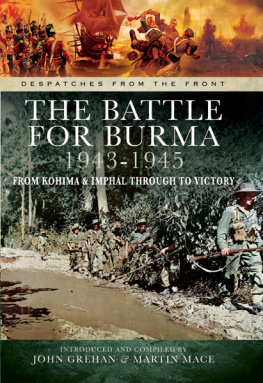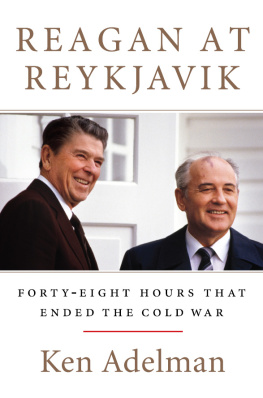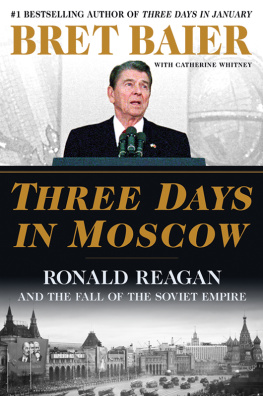Prelude to Moscow
Two major trends dominated Soviet-American relations during the months prior to the Moscow Summit of mid-1988. The momentum of diplomatic accommodation continued along its upward swing, creating expectations of farther progress in the coming superpower dialogue. But a countervailing trend persisted, notably a buildup of tensions on the human rights issue as both sides jockeyed for negotiating positions in pre-summit diplomacy, exacerbating the deeper, systemic discord that lay at the base of the relationship. The interaction of these competing forces produced a mood of positive expectation and promise as both sides prepared for the Moscow meeting, a mood generally mixed with a realistic belief that accomplishments would probably be more symbolic than substantive.
Americans approached the Moscow Summit with limited expectations. Hopes for signing a long-range strategic nuclear weapons agreement, the expected centerpiece of the summit, faded rapidly as negotiators failed to resolve their differences in last-minute efforts, though some officials seemed to hope that some progress, if not a breakthrough, could be achieved. No major changes were produced in U.S. negotiating positions after a series of pre-summit White House meetings, nor were there positive signs from the Soviet side as they held firm to their views. Since little was expected in the area of arms control, U.S. planners expected the summit to be heavy on symbolism and ceremony, and light on substance.
In contrast to U.S. limited expectations, the Soviets expressed more hope. Regular contacts were important at the summit level, they said; but they were also pressing on a number of key issues, notably the speeding up of the START negotiations and the opening of negotiations on conventional arms. For the Soviets, arms control was the primary interest.
By the time of the Moscow meeting, the over-all agenda had taken on a fairly routine pattern, given the fact that the United States did not recognize (at least formally) the supremacy of arms control; namely, arms control, regional issues, human rights and humanitarian issues, and problems in bilateral relations. Arms control, usually the de facto vital center of the concentric circle of the relationship, had top priority. Difficulties had barred the way for agreement on strategic arms on such key issues as the interpretation of the ABM Treaty and agreements on future research, testing, development and deployment of space-based ballistic missile defenses (SDI); limits on submarine-launched cruise missiles; and verification provisions. Prior to the Moscow Summit, there were no signs to encourage the belief that the broad area of disagreement over the many technical issues in strategic nuclear arms would be narrowed. Arms control was expected to be given a full airing at the Moscow Summit, but agreement, at least on the central areas of conflict in strategic nuclear weapons, was not realistically expected.
Regional issues were expected to play an important role in the Moscow Summit, particularly Soviet disengagement from Angola. Human rights was to be high on the U.S. agenda, and the President was expected to press his case for expanded human rights in the Soviet Union with renewed vigor.
Bilateral issues, a catch-all for other problems in Soviet-American relations, mostly functional, was the last category on the agenda. Many agreements were in their final stages awaiting top-level approval.
Both Gorbachev and Reagan engaged in a great deal of pre-conference maneuvering in the weeks prior to their meeting. Prominent among Gorbachevs efforts to influence the course and outcome of the upcoming summit was an extensive interview with the staff and owner of the Washington Post published on May 22, 1988. The interview, covering four printed pages of the Post, contained detailed explanations by the General Secretary of the Soviet positions to be taken at the summit. Prominent among them were his views on a strategic nuclear arms agreement as a priority issue. The interview was not only a formidable statement of Soviet expectations and goals as they entered the negotiations in Moscow, but it was also a strong counter-pressure on the U.S. negotiators to soften their stance.
In a series of statements, major speeches and an interview by Soviet journalists to be aired over Soviet television, President Reagan set forth his own expectations and goals to be achieved at Moscow. Prominent among these were his intentions of furthering the cause of human rights in the Soviet Union and establishing a stable and sustainable relationship with the Soviet Union. For the President human rights was the first item on his Moscow agenda because he saw the fulfillment of human rights linked indissolubly with the achievement of peace and security. Since differences in arms control, especially on reducing strategic offensive weapons by 50 percent, were not likely to be narrowed, his priority interest was placed on advancing the idea of human rights and expanding human contacts as a necessary corollary.
Gorbachev and Reagan also had their hidden agendas as they prepared to meet in Moscow. Each hoped to use the summit as a prestige-producing event to fortify his own political position at home. For Reagan there was additional incentive; namely, to end his presidency at a high point of success by negotiating a major agreement with Moscow. Both leaders, therefore, had good reason not only to meet in Moscow, but also to make their meeting a visible success.


